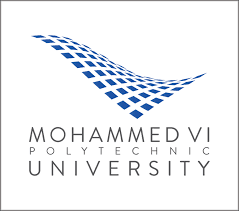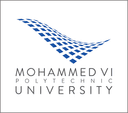Full-time Professor in GHG Emissions Quantification and Modeling
Area of specialization: Critical Zone is the “heterogeneous, near-surface environment in which complex interactions involving rock, soil, water, air, and living organisms regulate the natural habitat and determine availability of life-sustaining resources”. Its limits are defined as ranging from the top of the canopy down to the bottom of the aquifer. The successful applicant to this position will join the Global Critical Zone Science Chair to develop and conduct a research program in greenhouse gases (GHG) emissions measurement and behavior in the critical zone, with a particular focus on developing robust and implementable monitoring, reporting, and verification (MRV) systems to allow us to track the impact of agricultural practices on organic carbon sequestration in the soils and emissions of H2O, N2O, CO2, and CH4 from the soils. The applicant must have a good understanding of geochemistry and physics to understand GHG reactions and flows to be able to quantify them. The applicant will also need to implement and manage high-tower sites to model GHG flows in native forests and agricultural fields. There is a particular interest to link this work with organic C sequestration in the soils, microbial communities’ variability, C use efficiency, and other aspects related to soil health and the impact of conservation agricultural practices into controlling C, N, and P biogeochemical cycling.
The Global Critical Zone Science Chair at the Mohammed VI Polytechnic University (UM6P) invites applications for a full-time professor position in GHG emissions quantification and modeling (open rank). The successful applicant will conduct research aiming to understand the impact of different conservation agricultural practices on GHG emissions. The research should guide us on our task to design sustainable cropping systems that will lower GHG emissions and sequester organic carbon in the soils, making agriculture a tool for climate action. Due to the influence of the Northern Hemisphere (cool and temperate climates) where plant biomass growth is limited by N, there is a consensus that N (C/N) has a strong control over C sequestration as soil organic matter worldwide. However, as P is the most limiting nutrient for plant biomass production particularly in the Tropical Belt of the Northern and Southern Hemispheres, there is growing evidence of its control over several biogeochemical cycles, particularly those related to the formation of soil organic matter and the release of CO2, N2O, and CH4 mediated by the microorganisms. The research program should reflect the need of understand better the role of P (particularly P limitation) on GHG emissions and soil organic carbon. The applicant must have great modeling expertise to translate these findings into models that will allow us to improve carbon sequestration as soil organic matter and decrease GHG emissions in the P deficient and highly weathered soils of the tropics. This knowledge will support our efforts towards understanding and managing the “critical zone” to build sustainable cropping systems for sustainable societies. The successful applicant should develop his/her program with this in mind. Other duties include advising students and postdocs, teaching graduate courses at UM6P, support the overall activities of the Chair, and have a close relationship/follow up with the Chair’s scientific committee. The successful applicant will work in close collaboration with the different groups and departments of the university, including the Geology Department, College of Agriculture and Environmental Sciences, International Water Research Institute, African Genome Center, Chemical and Biological Sciences, and Material Science, among others. Evidence of research and teaching excellence is expected. Strong English communication skills, both verbal and written, are required.
Key duties: Successful candidates are expected to: Initiate, develop, and lead joint research projects and programs in agro-environmental science. Generate external research funds to support and maintain integrated research programs. Establish collaboration and partnerships with great international scientific institutes. Supervise postgraduate students, develop teaching materials, and attract high level-young scientists. Publish in well ranked and high impact-factor journals. Teach and develop research regarding the principles of GHG measurements, behavior, and modeling; its connection with the biogeochemical cycling of C, N, and P, and fundamental biological and chemical processes controlling organic carbon sequestration in the soil. Translate the basic scientific knowledge generate from the above-mentioned disciplines into sound management practices on how to better manage our soils and agricultural systems. Stay up to date with all current environmental science and GHG research, and also IPCC developments. Organize datasets and modelling efforts and support the development of long-term trials. Willing to travel for some time to develop field work in the African continent and to visit other international institutions and partners. Support the fulfillment of the goals and mission of the Global Critical Zone Science Chair.
Criteria of the candidate: PhD in environmental science, atmospheric science, or related fields from a recognized university. At least 2 years of postdoctoral research experience in environmental sciences within the above-mentioned subjects, preferably with international experience. High publication record in international well-ranked journals (at least 10 publications in the last 3 years). Significant research record and leadership in environmental science studies, including GHG measurements and modeling. Excellent verbal and written communication skills in English. Skilled in both field and lab work. Good record of funding. Proactive, ethic, and respectful person. Organizational dexterity, ability to prioritize and manage multiple projects. Maintains positive attitude in fast-paced changing environments.
Whoops! This job is not yet sponsored…
Or, view more options below
View full job details
See the complete job description, requirements, and application process
Stay on their radar
Join the talent pool for University of Mohammed VI Polytechnic (UM6P)
Join Talent PoolExpress interest in this position
Let University of Mohammed VI Polytechnic (UM6P) know you're interested in Full-time Professor in GHG Emissions Quantification and Modeling
Get similar job alerts
Receive notifications when similar positions become available

